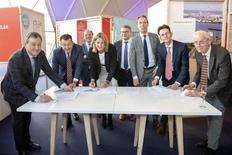
Project Overview
Port of Antwerp is launching a project to produce sustainable methanol by bringing together various players in the port area. This initiative aims to transition to alternative energy sources and achieve a carbon-neutral port.
Importance of Methanol
Methanol is a crucial raw material for the chemical industry and has multiple applications. The port uses around 300,000 tonnes of methanol annually for various chemical processes and fuel production.
Sustainable Production
The new production process will generate methanol from waste CO2 and sustainably produced hydrogen. The CO2 will be captured using Carbon Capture and Utilisation (CCU) technology, and hydrogen will be produced via electrolysis using green energy.
Environmental Impact
This method will significantly reduce CO2 emissions, potentially avoiding one to two tonnes of CO2 per tonne of methanol produced. Methanol can also serve as a sustainable fuel for tug boats and road traffic, with minimal harmful emissions.
Collaborative Effort
The project involves key partners like ENGIE, Oiltanking, Indaver, VMH, and Helm-Proman, each contributing their expertise. ENGIE will focus on electricity, Oiltanking on logistics, Indaver on CO2 collection, Helm-Proman on market development, and VMH on financing.
Future Goals
Port of Antwerp aims to introduce a methanol-powered tug in the near future, marking a significant step towards a sustainable and integrated port community.

